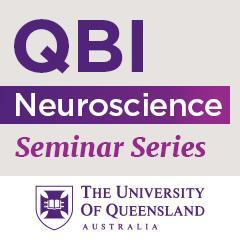Models and mechanisms of O-GlcNAc transferase intellectual disability

Speaker: Professor Daan van Aalten
Department of Molecular Biology and Genetics
Aarhus University
Title: Models and mechanisms of O-GlcNAc transferase intellectual disability
Abstract: The O-GlcNAc post-translational modification of intracellular proteins is essential for embryogenesis, development and brain function. Our knowledge of how O-GlcNAcylation regulates protein function and associated pathways is limited. An exciting new inroad into this is our recent discovery that patients with mutations in O-GlcNAc transferase (OGT) suffer from intellectual disability and (neuro)developmental delay (e.g. PNAS 2019), in a syndrome that we have defined as OGT-Congenital Disorder of Glycosylation (OGT-CDG, Eur.J.Hum.Gen. 2020). Although several OGT-CDG mutations have now been reported, it is not understood how these mutations are mechanistically linked to the neuro-developmental deficits seen in the patients.
I will describe common symptoms (intellectual disability, epilepsy, developmental delay) in a cohort of >65 unpublished patients, and will present the first example of genome editing in mice to generate three independent lines that carry OGT-CDG mutations. Excitingly, these mouse are viable, unlike previously reported Ogt knock-out mice, allowing the first phenotypic characterization of a vertebrate model of OGT-CDG. Notably, these mice show changes in size and weight suggesting developmental delay as observed in patients. Additionally, we observe changes in O-GlcNAc homeostasis to compensate for loss of OGT catalytic activity in the brain. This is associated with microcephaly, behavioural and cognitive defects, including hyperactivity, anxiety, compulsive behaviour and altered spatial working memory – again recapitulating several of the symptoms in OGT-CDG patients. Following on from a range of omics approaches, we have discovered the RNA helicase and intellectual disability protein DDX3X as a potential driver of this syndrome.
Taken together, this is the first example of phenotypes in mouse models of OGT-CDG reminiscent of patient symptoms resulting from pathogenic loss of OGT catalytic activity. These models are an invaluable starting point to gain insight into OGT-CDG etiology, identify underlying mechanisms of the disease and provide a platform for evaluation of potential future treatment strategies.
About Neuroscience Seminars
Neuroscience seminars at the QBI play a major role in the advancement of neuroscience in the Asia-Pacific region. The primary goal of these seminars is to promote excellence in neuroscience through the exchange of ideas, establishing new collaborations and augmenting partnerships already in place.
Seminars in the QBI Auditorium on Level 7 are held on Wednesdays at 12-1pm, which are sometimes simulcast on Zoom (with approval from the speaker). We also occassionally hold seminars from international speakers via Zoom. The days and times of these seminars will vary depending on the time zone of the speaker. Please see each seminar listed below for details.



